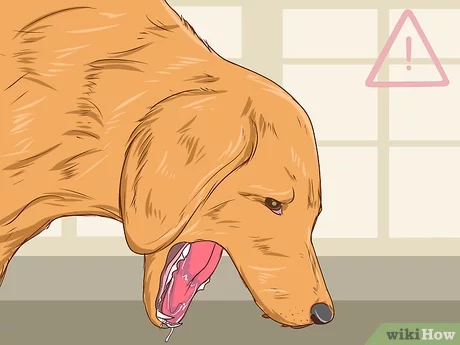Why Is My Dog Acting Drunk All Of A Sudden
Is Your Dog Acting Drunk All of a Sudden? Here’s What You Need to Know
If you’ve ever seen your dog stumble, sway, or act disoriented like they’re intoxicated, you may be wondering what’s going on. While it’s not uncommon for dogs to exhibit symptoms that resemble drunkenness, especially after ingesting certain substances or experiencing neurological issues, it can still be concerning and confusing for their owners. In this article, we’ll explore some possible reasons why your dog is acting drunk all of a sudden and what you can do about it.
Possible Causes of Dog Drunkenness
1. Poisoning: Dogs are curious creatures who love to sniff, lick, and chew on things they shouldn’t. Unfortunately, some of these things can be toxic or even deadly if ingested in large enough quantities. Common culprits include household chemicals (e.g., cleaning products, insecticides), human medications (e.g., painkillers, antidepressants), plants (e.g., lilies, azaleas), and food (e.g., chocolate, grapes). If your dog seems unsteady on their feet, vomits, drools excessively, has dilated pupils or seizures, take them to the vet immediately.
2. Hypoglycemia: Dogs need glucose (sugar) to fuel their cells and brain functions. When their blood sugar drops too low due to fasting, exercise, stress or insulin overdose (in diabetic dogs), they can develop hypoglycemia. This condition can cause weakness, confusion, tremors or seizures that mimic drunkenness. To prevent hypoglycemia in your dog, feed them small frequent meals throughout the day and avoid sugary treats that may spike their blood sugar levels.
3. Vestibular Disease: The vestibular system is responsible for maintaining balance and spatial orientation in dogs (and humans). When this system is disrupted by an infection, inflammation, tumor or trauma, dogs may experience vertigo, nystagmus (involuntary eye movements), head tilt and difficulty walking. This condition is known as vestibular disease and can be mistaken for drunkenness due to its similar symptoms. While some cases of vestibular disease are self-limiting and resolve on their own, others may require medication or surgery.
4. Brain Injury or Disease: Dogs, like people, can suffer from various brain disorders that affect their behavior, cognition and motor skills. Examples include encephalitis (brain inflammation), meningitis (brain lining inflammation), hydrocephalus (fluid buildup in the brain), stroke (blood vessel rupture or blockage), brain tumors (abnormal growths) and degenerative diseases (e.g., dementia). Depending on the severity and location of the brain damage, dogs may exhibit different signs of drunkenness such as weakness, lethargy, confusion or aggression.
5. Old Age: As dogs age, their bodies and minds undergo many changes that can affect their balance and coordination. Arthritis, vision loss, hearing loss and cognitive decline are common issues that can make your dog seem drunk or disoriented at times. While you can’t reverse the aging process, you can help your senior dog stay healthy and happy by providing them with a comfortable living environment, regular check-ups and appropriate exercise and nutrition.
How to Help Your Drunk Dog
If you suspect that your dog is acting drunk all of a sudden, don’t panic but don’t ignore it either. Here are some tips on how to deal with this situation:
1. Stay calm: Your dog can sense your emotions and may become more anxious or agitated if you’re too worried or angry. Speak to them in a soothing tone and avoid scolding or punishing them for something they can’t control.
2. Observe their behavior: Take note of when and how your dog exhibits drunkenness, and what other symptoms they may display (e.g., vomiting, diarrhea, panting). This information can help your vet diagnose the problem more accurately and prescribe the appropriate treatment.
3. Seek veterinary care: If your dog’s drunkenness persists or worsens over time, or if they show signs of pain, distress or seizures, take them to the vet as soon as possible. Your vet may perform a physical exam, blood tests, urine tests, imaging studies or other diagnostic procedures to determine the underlying cause of your dog’s symptoms.
4. Prevent future incidents: Once you know what caused your dog’s drunkenness, take steps to prevent it from happening again. Keep toxic substances out of reach, monitor your dog’s blood sugar levels if they’re diabetic, provide comfortable bedding and non-slip flooring for dogs with balance issues, and follow your vet’s advice on medication and nutrition.
Conclusion
Dogs can act drunk all of a sudden for various reasons that range from benign to life-threatening. As a responsible pet owner, it’s important to be aware of these possibilities and take prompt action when needed. By understanding the causes of your dog’s drunkenness and providing them with appropriate care and attention, you can help them recover faster and enjoy a better quality of life. So don’t hesitate to ask for professional help if you’re not sure what’s going on with your furry friend. They depend on you to keep them safe and healthy!



